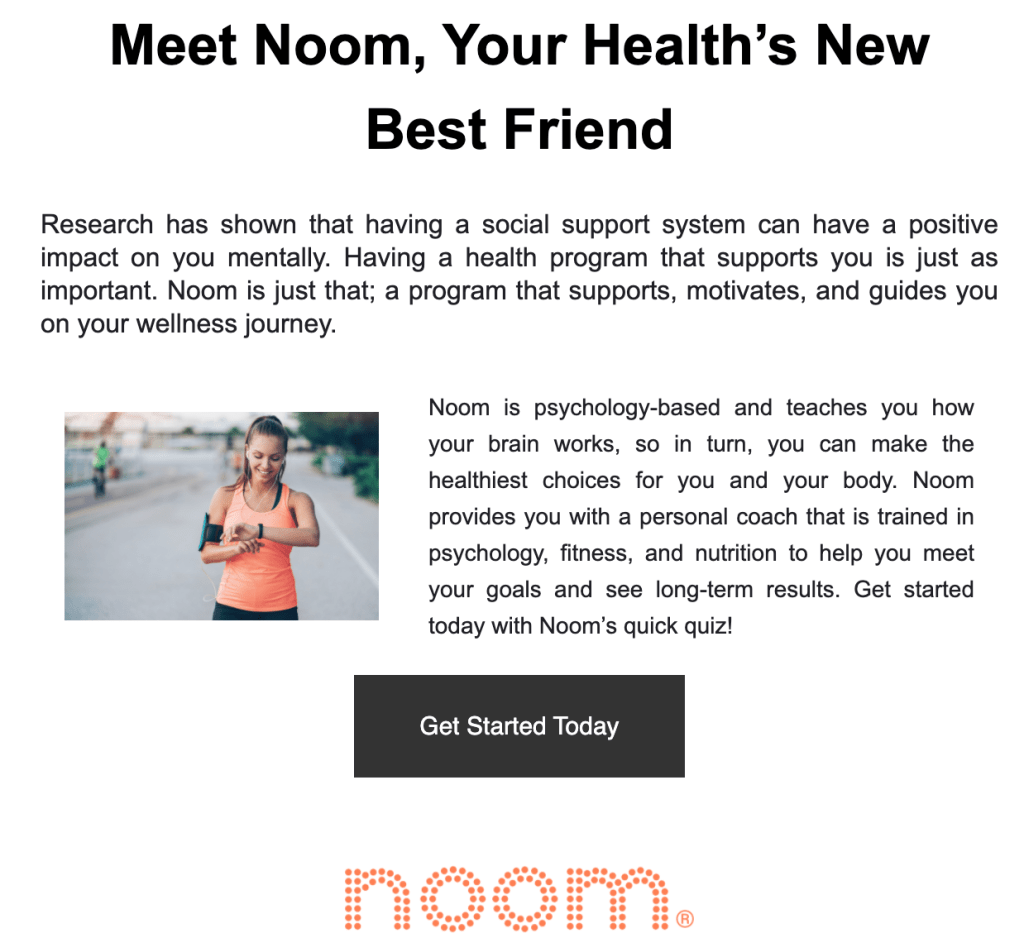A couple of days ago, I received a promotional email from a publication that I subscribe to, Runner’s World. Usually the content consists of feature stories, workouts, running strategy, seasonal tips, recipes, and other running-relevant stories.
The promotional email I received was titled “If You Want To See Lasting Health Results, Try Noom.” Here is a screenshot of the main content:

I was verydisappointed to receive this email.
As a registered dietitian and personal trainer, I inherently reject diet culture. Diet culture mostly markets fads, trends, quick fixes, elimination diets, restrictive eating behaviors, and almost anything but lasting results. This appeals to us nicely, since we are always looking for a dramatic quick fix.
Noom markets itself as a “psychology-based” program that teaches you what nutrition is best for you; basically the opposite of diet culture fads. It’s personalized so it can’t be a trend, right? Wrong.
Unfortunately, I have had clients come to me broken by Noom. I’ve had clients who aren’t meeting their needs and who have lost considerable muscle mass, and know nothing more about their own nutrition needs than they did before they joined Noom.
Let me take you through this case study: a 65-year-old woman currently on Noom came to me as a client. She was concerned that she was constantly feeling weak, lethargic and foggy, and was suffering from hair loss. Upon review of her Noom app, I saw that it gave her a ridiculous calorie limit (1200 calories/day…sound familiar to anyone?), and since she was so confused on what to eat and the app was giving her such generic suggestions she was eating about 800 calories a day and at most consuming 20 grams of protein.
The foods on the app were broken into red, yellow, and green categories. The classic traffic light system. If you aren’t familiar with this, it’s simple: limit red foods, enjoy yellow foods with caution, and go right ahead on green foods. The quantities for each category are limited, i.e. you’re only allowed a certain amount of red each day. She said she would have a handful of nuts or some peanut butter and poof! All the red calories “allowed” were gone. So she’s stuck eating fish and raw vegetables the rest of the day. Overly cautious of taking in too much fat.
Now for the running community, where nutrition is important for leisure and professional runners alike, there isn’t a shot in hell Noom would be able to support healthy habits. Nutrition is so, so important and it really is so individualized when done right.
The timing of this email is most certainly on purpose- early January when people are most vulnerable to try anything and everything to kickstart a resolution or pick themselves up from where 2020 left them. I am all about healthy changes, but I would expect a more wholesome partnership from an athletic publication.
